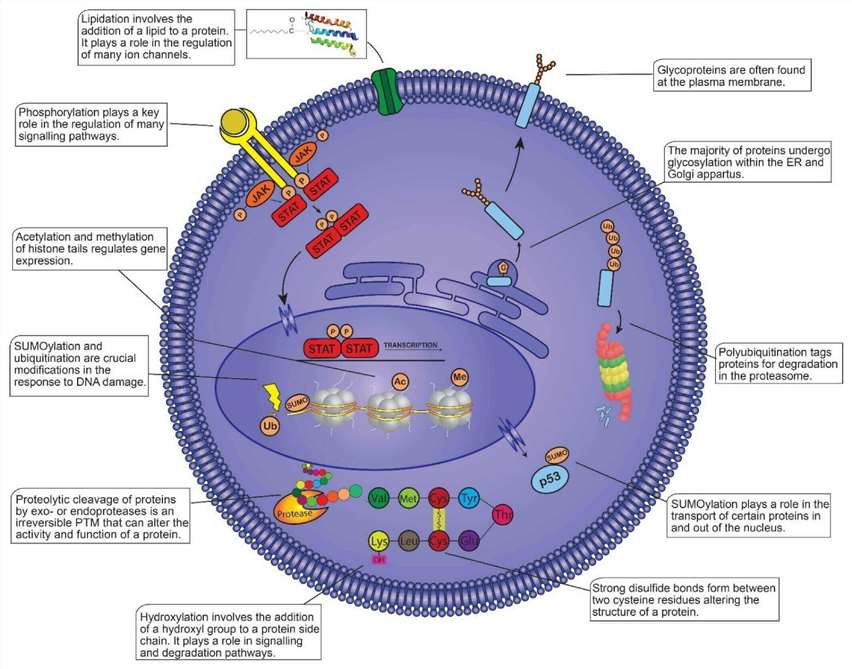Protein Post-Translational Modification Analysis Services
- Home
- Applications
- Proteomics Analysis Services
- Protein Post-Translational Modification Analysis Services
Service Details
Protein post-translational modifications (PTMs) refer to chemical modifications of proteins during or after translation, which play key roles in many cellular processes, such as cell differentiation, protein degradation, signaling and regulatory processes, gene expression regulation, and protein interaction. Common PTMs include phosphorylation, acetylation, ubiquitination, glycosylation and so on, which add a layer to the proteome by adding biochemical moieties to specific residues of a protein, altering its structure, function, and/or localization complexity. Therefore, the characteristics of PTMs, including modification classes and modification sites, are crucial in cell biology as well as disease diagnosis and prevention research. Currently, mass spectrometry (MS)-based techniques are at the forefront of PTMs analysis, capable of detecting a large number of modified proteins with high levels of sensitivity and specificity.
 Fig. 1. Post-translational
modifications (PTMs) within the mammalian cell. (Dunphy K, et al., 2021)
Fig. 1. Post-translational
modifications (PTMs) within the mammalian cell. (Dunphy K, et al., 2021)
Creative Proteomics, a leading global provider of protein sequencing, provides high-quality PTMs analysis using mass spectrometry (MS)-based methods. Here, we have built an advanced analytical platform that can be used to characterize various protein translations. We offer mass spectrometry-based methods that provide high reproducibility, sensitivity, specificity, and accurate mass data.
Protein post-translational modifications (PTMs) are affected by many factors. The levels of most post-translational modifications are very low and must be enriched before identification. Creative Proteomics provides comprehensive PTMs analysis services to meet diverse needs by providing bottom-up and top-down approaches.
In the identification process of bottom-up protein post-translational modification, the protein will first be cut into peptide fragments by enzymes, then analyzed by mass spectrometry, and the molecular mass information of a series of peptide fragments is obtained. The top-down approach is to directly analyze the entire protein.
Creative Proteomics provides the following protein post-translational modification identification analysis services but not limited to:
*Note: We also offer custom analysis services to identify many other types of PTMs. For special requirements, please contact us for project discussion.
With years of experience in protein sequencing, Creative Proteomics provides a one-stop-shop for protein PTMs analysis to customers worldwide, including:
Creative Proteomics is a trusted provider of proteomics analysis services. Thanks to our outstanding scientists and powerful mass spectrometry platform, we offer a range of PTMs analysis services to our clients worldwile. Our services guarantee accurate and reliable results, at quick turnaround time! If you are interested in our services, please contact us to see how we can help solve your problem.
References
For research use only, not intended for any clinical use.